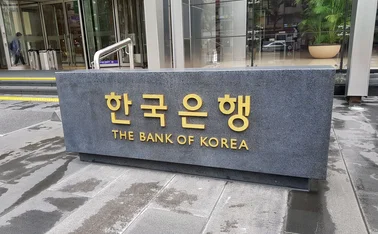
Bailey sets resolution criteria for foreign banks' UK branches

Foreign banks' ability to open branches in the UK and the activities they can conduct there will crucially depend on the quality of resolution regimes in their home countries, according to the Bank of England's (BoE's) Andrew Bailey.
Bailey, the BoE's deputy governor for prudential regulation, stressed the importance of effective regulation at the British Bankers' Association (BBA) annual international banking conference yesterday.
Resolution is taking centre stage on the international reform agenda, most notably in the European Union, according to Sharon Bowles, the chair of the European Parliament's committee on economic and monetary affairs.
Bowles, also speaking at the conference, said the presence of dependable resolution plans was "highly important" to the general public and other market participants' confidence in banks.
Bailey explained that, since the onset of the financial crisis, cross-border bank lending has "declined more sharply" than overall lending, which he said was representative of "home preference" setting in. He said regulators can circumvent this "trend toward fragmentation" by implementing an effective regime for banking resolution.
Bailey added that regulators should strive to achieve a level of resolution planning that leads national authorities to trust one another and fosters the assumption that capital and liquid assets can, and will, be employed across countries when they are needed.
He conceded that resolution was "the toughest nut to crack" in the financial reform package, but said it would, when solved, do the most to "unlock other issues".
In particular, Bailey said, an effective reform regime would allow regulators to take "a more neutral stance" on the question of whether foreign banks should be allowed to operate as subsidiaries or branches.
The BoE's Prudential Regulation Authority (PRA) signalled its willingness for a larger number of Chinese banks to establish branches in the UK – something that was revealed by the UK's Chancellor of the Exchequer George Osborne in China earlier this week.
Bailey stressed that the deal is not a special arrangement for China but, rather, represents a broader change in policy that will govern how the PRA decides whether a bank from outside the European Economic Area (EEA) will be allowed to open a branch in the UK.
Bailey explained that the PRA does not want branches from outside the EEA undertaking "critical retail banking functions" beyond a certain minimum level. "In particular, we think new non-EEA branches should stick to straightforward wholesale banking, of the type that supports world trade and capital flows," he said.
Bailey stressed that resolution would be a "key deciding factor" in the PRA's decision-making process. "We will expect very clear and credible assurances from the parents of banks wishing to operate as branches and from the home state authorities," he said.
Only users who have a paid subscription or are part of a corporate subscription are able to print or copy content.
To access these options, along with all other subscription benefits, please contact info@centralbanking.com or view our subscription options here: http://subscriptions.centralbanking.com/subscribe
You are currently unable to print this content. Please contact info@centralbanking.com to find out more.
You are currently unable to copy this content. Please contact info@centralbanking.com to find out more.
Copyright Infopro Digital Limited. All rights reserved.
As outlined in our terms and conditions, https://www.infopro-digital.com/terms-and-conditions/subscriptions/ (point 2.4), printing is limited to a single copy.
If you would like to purchase additional rights please email info@centralbanking.com
Copyright Infopro Digital Limited. All rights reserved.
You may share this content using our article tools. As outlined in our terms and conditions, https://www.infopro-digital.com/terms-and-conditions/subscriptions/ (clause 2.4), an Authorised User may only make one copy of the materials for their own personal use. You must also comply with the restrictions in clause 2.5.
If you would like to purchase additional rights please email info@centralbanking.com








